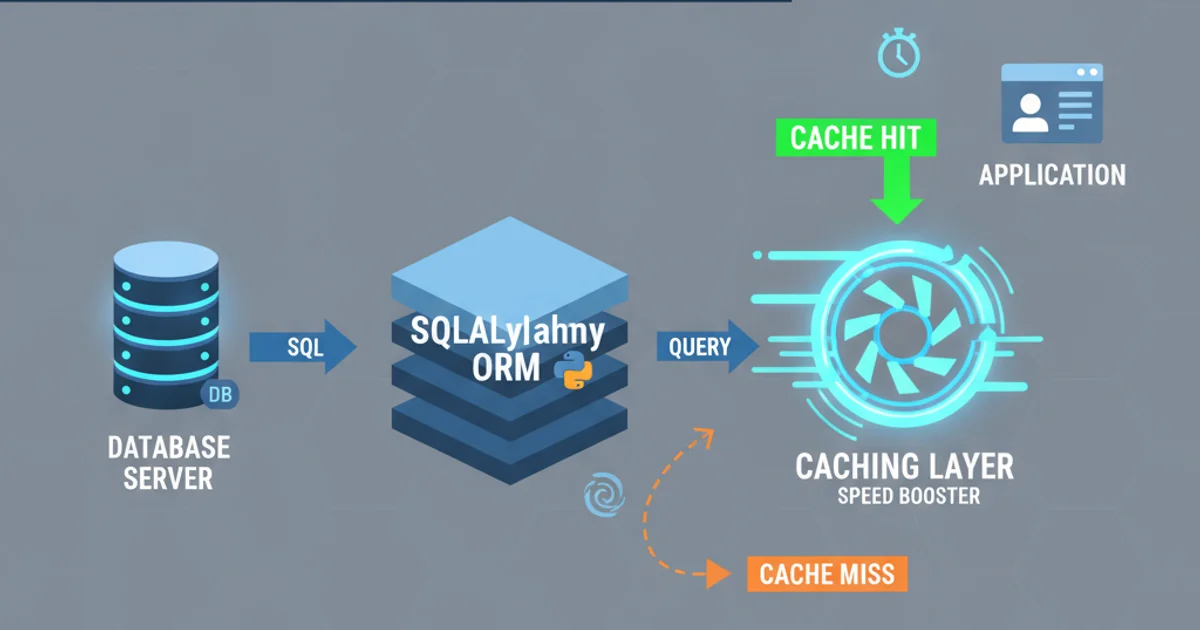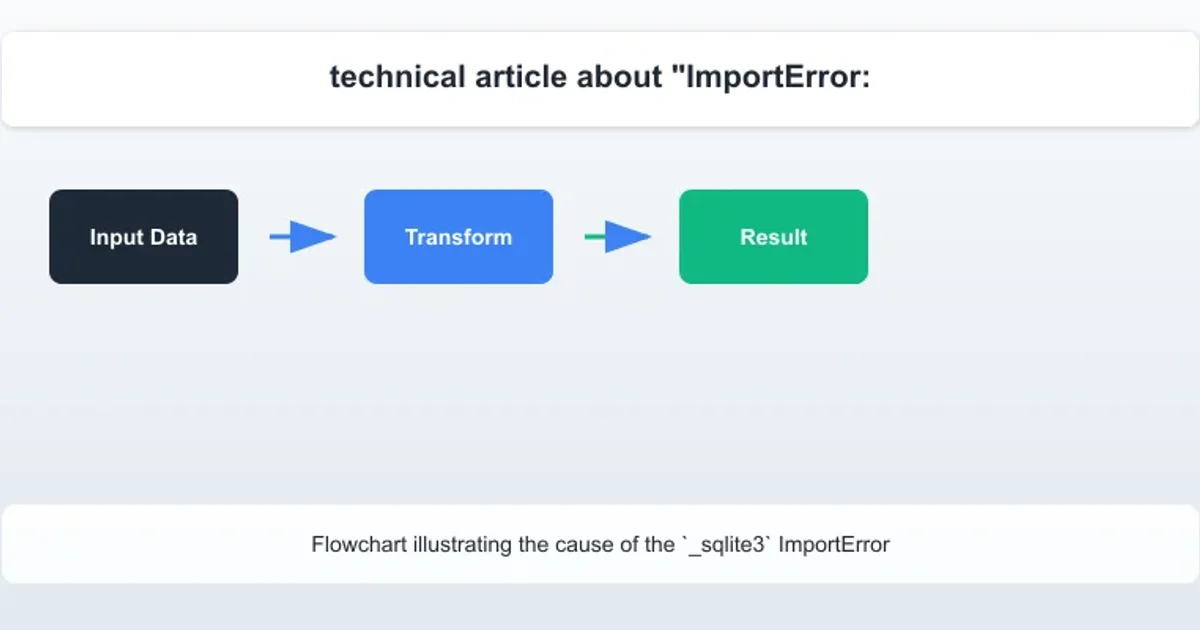ImportError: No module named '_sqlite3' in python3.3
Categories:
Resolving 'ImportError: No module named '_sqlite3'' in Python 3.3

This article provides comprehensive solutions and troubleshooting steps for the common ImportError: No module named '_sqlite3' encountered when working with Python 3.3, especially in Django projects.
The ImportError: No module named '_sqlite3' is a frequently encountered issue for Python developers, particularly when setting up environments or deploying applications that rely on SQLite databases. This error indicates that the Python interpreter cannot find the necessary C-level SQLite library bindings, which are crucial for Python's sqlite3 module to function correctly. While this problem can occur across various Python versions, it was notably common in Python 3.3 environments, often affecting Django projects that use SQLite as their default database.
Understanding the Root Cause
Python's sqlite3 module is a wrapper around the SQLite C library. For this module to work, the Python interpreter needs to be compiled or linked against the SQLite development libraries. If these libraries are missing or incorrectly configured during Python's build process, the _sqlite3 module (the C extension part) will not be built, leading to the ImportError. This is particularly prevalent in environments where Python is compiled from source or installed on minimal systems that lack common development packages.

Flowchart illustrating the cause of the _sqlite3 ImportError
Common Scenarios and Solutions
The solution often depends on how Python was installed and the operating system in use. The core idea is to ensure that the SQLite development headers and libraries are present before Python is compiled or recompiled.
sudo on Linux) for installing packages.1. Install SQLite Development Libraries
This is the most common fix. You need to install the development package for SQLite on your system. The package name varies by operating system.
2. Recompile Python (If Installed from Source)
If you installed Python from source, you will need to recompile it after installing the SQLite development libraries. This ensures that the _sqlite3 module is built correctly.
3. Verify the Installation
After recompiling and reinstalling Python, verify that the sqlite3 module can be imported without errors.
Detailed Solutions by Operating System
Below are specific instructions for common operating systems.
Ubuntu/Debian
On Ubuntu or Debian-based systems, use apt-get to install the necessary packages. Then, if Python was built from source, recompile it.
sudo apt-get update
sudo apt-get install libsqlite3-dev
# If Python was installed from source, navigate to its source directory and recompile:
# cd /path/to/Python-3.3.x
# ./configure
# make
# sudo make install
CentOS/RHEL/Fedora
For Red Hat-based systems, use yum or dnf to install the development package.
sudo yum install sqlite-devel # For CentOS/RHEL 6/7
# OR
sudo dnf install sqlite-devel # For Fedora/CentOS 8+
# If Python was installed from source, navigate to its source directory and recompile:
# cd /path/to/Python-3.3.x
# ./configure
# make
# sudo make install
macOS (Homebrew)
On macOS, Homebrew usually handles dependencies well. If you installed Python via Homebrew, it should have linked SQLite correctly. If you built Python from source, ensure Homebrew's SQLite is linked.
brew install sqlite
# If Python was installed from source, ensure it's configured to use Homebrew's sqlite:
# cd /path/to/Python-3.3.x
# ./configure --with-sqlite=/usr/local/opt/sqlite
# make
# sudo make install
Windows
On Windows, the official Python installers typically include the _sqlite3 module. If you're encountering this error on Windows, it's usually due to a non-standard Python installation or a corrupted environment. The best approach is often to reinstall Python using the official installer from python.org.
- Download the appropriate Python 3.3 installer from the official Python website.
- Run the installer and ensure all components are selected.
- Verify the installation.
Verifying the Fix
After applying the solutions, open a Python interpreter and try to import the sqlite3 module. If no error occurs, the issue is resolved.
import sqlite3
print(sqlite3.version)
print(sqlite3.sqlite_version)
Verifying the sqlite3 module and its versions
If the above commands execute without an ImportError, your Python environment is now correctly configured to use SQLite.
sqlite3. If you're using a system-wide Python, the virtual environment will inherit its capabilities.